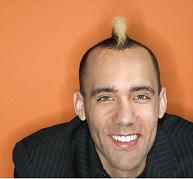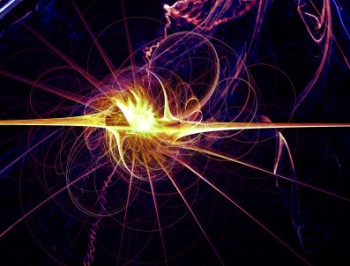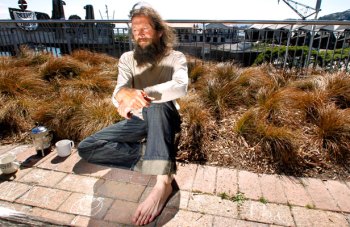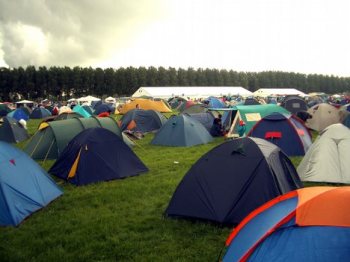It is hard for me to write the words “Occupy Wellington has failed”. Ever since the majority of campers left Civic Square in December I have been waiting and hoping that new life will spring up. Ever since Occupy New York came to my attention I have hoped we were seeing something powerful. However, I can only report what I see. Social movements are complex, hence I can’t identify one factor alone that has hamstrung the movement. I think it’s a combination of the themes below:
Youthful optimism versus harsh reality
Camping was hard. Strangely, the hardest part appeared to be living with other people in camp, not external pressure. By December a large number of the younger contingent left the Civic Squre site in frustration. I had hoped to see them return, but as at mid-March this does not appear to be occurring. One of the “originals” organised a General assembly for March the 3rd. This was rained out, and there has been no attempt to re-ignite a GA. If these original campers can no longer be bothered turning up, I think Occupy is dead in Wellington.
Personal disputes marred the camp as well. Many seasoned protesters refused to join Occupy because of the presence of one person who they did not respect. However, I do wonder whether these long-term protesters would have brought their own issues, eg an inability to let go their previous views of the world.
Lack of ordinary older people
Perhaps older and more experienced people could have brought some perspective and wisdom to the camp, and been able to mediate some of the disputes. However, there was a low percentage of those living in the camp who were over thirty. There was a lot of external support from such people in my experience, but very few were able to spend significant amounts of time with the campers. Because we sought to support the 99%, it would have balanced us to have involvement from ordinary people and families (accountants, nurses, teachers, lawyers, the fire service, retired people… ). The vast majority of the campers were students and under-employed people.
Freeloaders
The percentage of those who turned up for a free bed and food versus those who were there to achieve other goals was too high. Some of the freeloaders bought problems such as drugs and violence on site and the camp spent too much of its time on dealing with internal needs, rather than outreach to the general public.
However, there was another sort of freeloader: Those that spent much of their time participating on the internet but rarely any time physically on site. Even some admins of the various internet presences were hardly ever seen in Civic Square.
Violence
At one or two points pre-December there was violence and sexual harassment against women. This was poorly handled and pushed some people away. (Sadly, the queer caucus had already left.) The “safer spaces” methods were ignored. In the final week of the encampment after all of the original occupiers had left there were two arrests for violence. Ironically the (allegedly) self-proclaimed head of security was one of those arrested. A satisfactory way of dealing with violence was never achieved. Even though there was very little violence in the camp, violence has a way of affecting morale and trust far beyond its circle.
Lack of clear goals
Although the group did come up with clear goals, it appears they weren’t adopted by enough of the campers. There were too many people camping who had a vague idea, or no idea of what Occupy was really about.
This meant that it was easy for the camp to be co-opted by other elements. The camp began to support all protests (from 9/11 conspiracies, to the Food Bill, to anti-Fracking and more). Overseas, Occupy was fundamentally a protest against the influence of the very rich; these other protests diluted and confused the Wellington camp. In addition, there were some who had their own agenda, or who were still tied to old ways of thinking, for example Marxism.
Poor Marketing
When I was just a member of the public, my experience of the camp’s message was poor. Towards the end I heard numerous comments that the camp was actually intimidating for many people. However judgemental it might have been, the fact was that a phalanx of “scary looking” people at the entrance was not welcoming for many of the 99%.
Media Lies
Having been on “the inside” of a few stories I am now under no illusions about the mainstream media. Many reporters are extremely dishonest and partisan. Unfortunately, the general public is simply unaware of how biased most stories are. The biased reporting did have some influence on the success of the movement; perhaps if the camp had lasted longer or done more than elaborate navel-gazing the reporting would have changed over time.
Lack of action
The Occupy Wellington camp carried out a few noisy protests, talked interminably, and had a couple of people’s universities. But they really didn’t DO much. Yes, they fed people, but let’s not forget this was largely feeding themselves. Where was the assistance for those oppressed by the ultra-rich, for example the occupying of foreclosed homes or businesses? Occupy Wellington really did not seem to take on this aspect of the overseas occupations at all. It was only at the end with support for locked-out workers in Marton that they began to do any practical good for the oppressed.
So What Next?
I note that many of the above problems were also extant in Occupy Auckland, from my discussions and brief attendance of a GA up there.
Now that the camp is no more, a popular slogan is “You can’t kill an idea”. However, an idea ultimately has to have some outcome or it is meaningless. The idea was Occupy, the idea was camping. Without this protest, there is no movement.
Occupy is now reduced to pontification on the internet about “Occupy 2.0” and the suggestion of more new publications. Publications have rarely done any good, and only tie people and resources up in time-wasting efforts to speak to themselves. Marxist groups, for example, have handed out their newspapers for decades with very little to show for it. Propaganda without action is useless.
In Wellington, some Occupiers have drifted off into party politics, a fact that amazes me and suggests they never understood Occupy in the first place. (It’s also noteworthy how little interest in Occupy various Green, Mana and Labour party people have now that the elections are over. Coincidence? I think not.)
Some Occupiers have moved back to various Marxist or Anarchist groups. The latter have never produced anything of note in New Zealand. Marxism hasn’t produced a new idea in the last century and is irrelevant. Occupy was a chance to leave behind these political dinosaurs and attempt to come up with something new.
For myself, I would like to take action. I don’t pretend that I have the answers or desire to be a leader. However, if there were just a few others who were willing I would be camping on public land tonight. Specifically I would like to begin a new camp whose aim would be twofold: 1.To take practical, visible action in support of the 99% and against the 1% and 2. To outreach, explain our purpose and invite others to join.
However, at present it appears I would have to find a completely new group who would be willing to work together, as the former Occupiers appear to have completely lost their interest. I hope I am wrong. But I don’t have the energy or ability to do it by myself. At present I am just another person sitting back, waiting for someone else to do something. And hence, Occupy will die. You can’t kill an idea that has already died, and the idea of Occupy – in Wellington – is dead.







